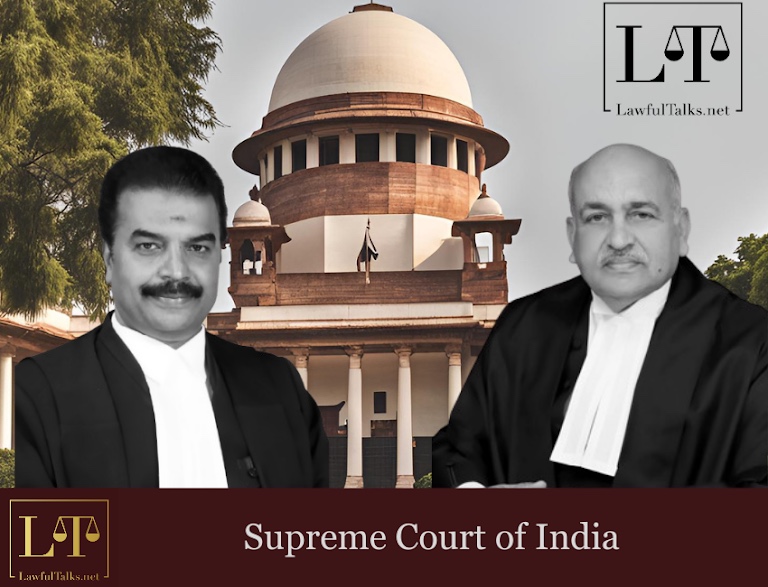Allahabad HC Sets Aside Afzal Ansari's Conviction, Allows Him to Continue as MP

Purpose Of Religious Conversion Can’t Be To Derive Benefit Of Reservation, Defeats The Social Ethos Of The Policy Of Reservation: Supreme Court
The Supreme Court has upheld the decision of the Madras High Court and has dismissed an appeal of a woman who although was born Christian claimed to be a Hindu to avail the benefits of reservation while applying for an Upper Division Clerk job in Puducherry.

Calling upon India’s secular nature the bench of Justice Pankaj Mithal and Justice R. Mahadevan reiterated Article 25 which empowers citizens the right to practise and profess a religion of their choice and under the same if reconversion is disguised for the purpose of availing benefits then it is seen as a fraud on the Constitution and contrary to the ethos of reservation policies.
“Every citizen has a right to practise and profess a religion of their choice as guaranteed under Article 25 of the Constitution. One converts to a different religion, when he/she is genuinely inspired by its principles, tenets and spiritual thoughts. However, if the purpose of conversion is largely to derive the benefits of reservation but not with any actual belief on the other religion, the same cannot be permitted, as the extension of benefits of reservation to people with such ulterior motive will only defeat the social ethos of the policy of reservation.”
The appellant in the instant case claimed that she was born to a father who initially practiced Hinduism and a mother who was originally a Christian, both of whom later adopted Hinduism as their faith. She further claimed that her family identifies as belonging to the Valluvan caste. Additionally, she asserted that she was recognized as part of the Scheduled Caste (SC) community during her education, and that both her father and brother possess SC certificates.
The bench called reference to Sapna Jacob, Minor v. State of Kerala wherein it was held that “it cannot test or gauge the sincerity of religious belief; or where there is no question of the genuineness of a person’s belief in a certain religion, the court cannot measure its depth or determine whether it is an intelligent conviction or ignorant and superficial fancy. But, a Court can find the true intention of men lying behind their acts and can certainly find from the circumstances of a case whether a pretended conversion was really a means to some fur in this case However, for the purpose of employment in public services, the appellant made application for issuance of Scheduled Caste community certificate.”
The Supreme Court noted that by way of a field verification and the report submitted by the Village Administrative Officer, after a detailed enquiry and through the documentary evidence collected it was proved that marriage of the parents of the appellant under the Indian Christian Marriage Act, 1872, and along with this the appellant, appellant’s father and her brother were all baptized as well.
The Court ruled that individuals who have converted to Christianity are ineligible for Scheduled Caste (SC) benefits unless they present clear and convincing evidence of reconversion to Hinduism and subsequent acceptance by their original caste community. In the present case, the appellant, despite claiming adherence to Hindu practices, was unable to substantiate her reconversion or caste reacceptance with adequate proof.
The court observed that, “In any case, upon conversion to Christianity, one loses her caste and cannot be identified by it. As the factum of reconversion is disputed, there must be more than a mere claim. The conversion had not happened by any ceremony or through Arya Samaj. No public declaration was effected. There is nothing on record to show that she or her family has reconverted to Hinduism and on the contrary, there is a factual finding that the appellant still professes Christianity”
Thus,after due consideration the court held that, “In any case, upon conversion to Christianity, one loses her caste and cannot be identified by it. As the factum of reconversion is disputed, there must be more than a mere claim. The conversion had not happened by any ceremony or through Arya Samaj. No public declaration was effected. There is nothing on record to show that she or her family has reconverted to Hinduism and on the contrary, there is a factual finding that the appellant still professes Christianity. As noticed above, the evidence on hand is also against the appellant.”
The appeal was hereby dismissed.
Case Title: C. Selvarani Versus The Special Secretary- Cumdistrict Collector And Others
Advocate For Petitioner (s):Ms. N. S. Nappinai, Sr. Adv. Mr. V. Balaji, Adv. Mr. Rakesh K. Sharma, AOR
Advocate For Respondent(s) Mr. Aravindh S., AOR Mr. Abbas B, Adv. Ms. Tharane S, Adv

Akshaj Joshi
Law Student
Latest Posts
Categories
- International News 19 Posts
- Supreme Court 352 Posts
- High Courts 367 Posts





























































































































































































































































































































































































































































































































































































































































































































































